Knowing the IP address in Kali Linux is useful for networking, connectivity, and device identification. During ethical hacking tasks or cybersecurity exercises, it also aid in vulnerability testing. Additionally, you require an IP address for remote access to inactive devices. Fortunately, you can easily check the IP address of the Kali Linux system using either the GUI or CLI.
In this guide, we’ll demonstrate 4 distinct methods to check IP address in Kali Linux.
Methods to Check IP Address in Kali Linux
Following this, we’ll cover four methods: one using the GUI and three using the CLI. You can then choose any according to your preference. Each of these solutions is both easy to implement and efficient.
1. Using GUI
Firstly, we’ll use GUI for checking the IP address. To locate the IP address, default gateway, MAC address, and DNS server settings right click on the network icon. Then, select Connection Information from the drop-down list:
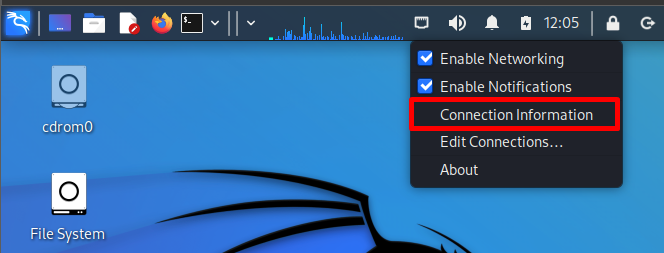
Next, you’ll observe a screen displaying general details, along with both IPv4 and IPv6 information. Here, you can find the IP address, broadcast address, subnet mask, default route, and primary DNS (IPv4):
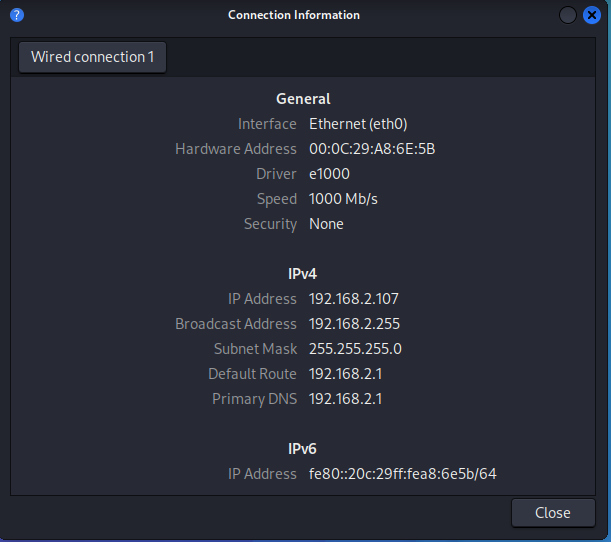
2. Using ifconfig Command
Secondly, we can use the ifconfig command, which is used to configure the network interface. First, execute the ifconfig command:
$ ifconfigIt displays currently running network interfaces on your system. Additionally, it provides details such as the IP address, netmask, and other configurations Specifically, this information is available only for those interfaces that are currently running:
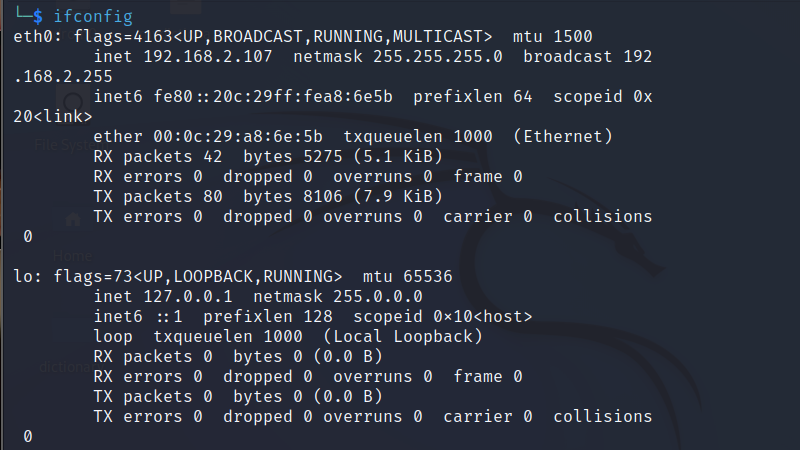
The ifconfig -a command works similarly to ifconfig. However, the key difference is that it displays both active and inactive network interfaces on your system:
$ ifconfig -a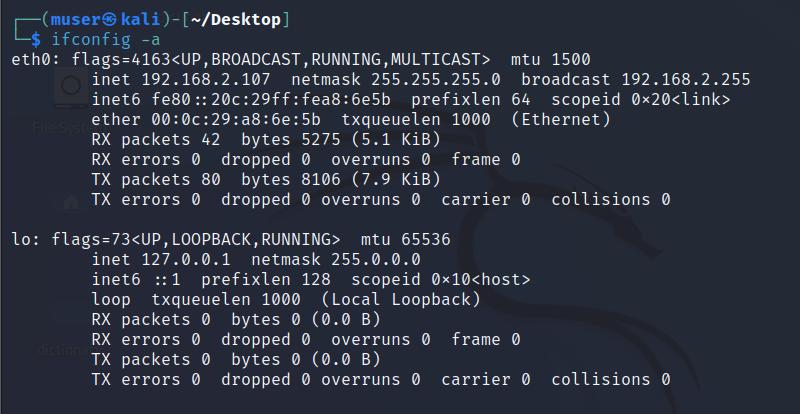
Thus, you can observe the IP address of your Kali Linux.
3. Using Hostname Command
Furthermore, you can also use the hostname command, which is used to display or set the name of the current system. You can use the -i flag to display the IP address of the host as resolved by the system:
$ hostname -iSimilarly, the Hostname -I command shows all assigned IP addresses for the host, separated by spaces:
$ hostname -I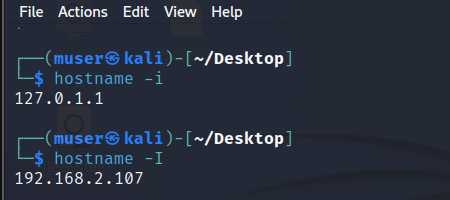
4. Using ip Command
The ip addr show and ip a commands display the network interfaces along with their IP addresses on a Linux system. The ip a command is a shorthand version of ip addr show, allowing for quicker typing:
$ ip addr show
$ ip a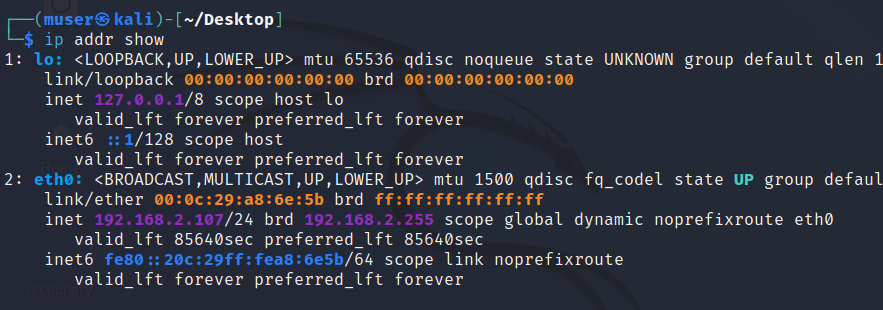
Now, you can use your system IP address for tasks like network configuration, troubleshooting, or remote access.
Conclusion
All in all, checking and knowing the IP address of your system is crucial, as it is often used in various tasks. In this guide, we’ve discussed four methods to check the IP address of your Kali Linux system. Thus, you can opt for whichever command is easiest for you to use.
We’d love to hear your suggestions! If there’s a topic you want the Linux Fellas to cover, just leave a comment below.
I’m Malaikah, a Digital Forensics and Cyber Security student and CEH certified, with a passion for writing about Linux and the tech world.












